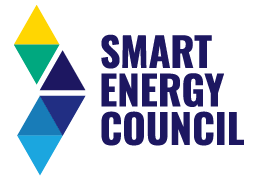Member/Partner News
From CSP to home electrification: Australia’s groundbreaking progress

Australian company Vast Solar is on track to build Australia’s first full scale solar concentrated power plant which will be sized at 30MW and 288MWh and located in South Australia.
Known as VS1, the $203 million plant’s modular arrays of solar towers and receivers will capture and store energy from the sun and use sodium as a heat transfer fluid to generate electricity.

Included in the funding package is $40 million from the Australian and German governments to develop a hydrogen electrolyser and solar methanol conversion facility at the site.
Scaling up has long been in the planning for Vast Solar which several years ago built a 1.1MW pilot plant in eastern Australia to prove its technology.
Vast Solar chief executive Craig Wood who labels the 24/7 dispatchable energy from the sun’s rays as ‘CSP v3.0 technology’ is also eyeing up opportunities to build a second, larger 50MW CSP plant in Queensland in Australia’s east.
He envisages these plants acting as a catalyst for a world-leading CSP industry providing clean, renewable energy with low-cost, long-duration storage.
The technology has already captured great international interest; Vast Solar recently sealed a deal with Nabors, the world’s biggest oil industry drilling contractor, to publicly list on the New York Stock Exchange, catapulting Vast’s equity base to $US580 million.
On the drawing board: the world’s largest hydrogen electrolyser plant
The South Australian government has announced plans to build a 250MW hydrogen electrolyser, which on completion would be ten times bigger than any other such plant in the world and in turn supply a 200MW hydrogen power plant, also the largest in the world.
The $600 million Whyalla green hydrogen project which is being funded by the South Australian government has attracted enormous interest among international technology suppliers and project developers as well as potential green hydrogen customers.
At the helm is the same man who is used to commandeering big picture developments, having paved the way for what was then the world’s biggest lithium-ion battery, the Tesla big battery in Hornsdale, South Australia in 2017.
At the time there was much scepticism over the 100MW (129MWh) project however the battery continues to perform beyond expectation and just three years later was scaled up to 150MW (194 MWh), becoming a forerunner for batteries twice that size in the grid across Australia and the world over.
Big win on home electrification for Rewiring Australia
Rewiring Australia’s Saul Griffiths has strongly praised an $8 million plan to trial innovative ways to fully decarbonise homes in three communities in the state of New South Wales.
The project will focus on installing zero emissions appliances and technologies and rooftop solar which the government says is “all about using the latest technology to give people more control of their energy bills, while contributing to NSW’s target to reduce emissions by 70% by 2035.”
Saul, who collaborated with Whitehouse staff and the US Senate to help deliver President Biden's ambitious climate outcomes and advised on content of the widely lauded Inflation Reduction Act, says “This is the values-based capitalism we need”.
The Smart Energy Council, which has teamed with Rewiring Australia to lead the national debate on home electrification and likewise lauds the $8 million plan, hopes it acts as a catalyst for much greater ambition.
The Council is calling for a critical investment of $10 billion dollars over 10 years to electrify Australian homes and support families and low-income earners in the take up of smart energy products.
Speaking at the highly successful Smart Energy Council Climate Action summit Saul noted that since 1990 the cost of home electricity, running gas appliances and petrol cars has risen exponentially from $2000 to greater than $6000 in 2022 and is still on the rise.
By contrast the cost of running an electrified home with 100% solar and 50% battery sits at $2000 a year, with savings of $42,000 over a ten-year appliance lifetime.
Climate Capital Forum
In other groundbreaking developments, a Climate Capital Forum has been launched with a detailed policy roadmap outlining bold reforms needed to position Australia as a leader in zero-emissions trade and investment.
Climate Capital Forum co-Founder Blair Palese who presented the roadmap at the Smart Energy Council Climate Action Summit said Australia needed a strategic climate plan similar to that of the $369 billion US Inflation Reduction Act which is turbocharging spending and investment into climate solutions and innovation in America.
“Our road map is clear. We need to put everything on the table to kick-start the rapid, strategic decarbonization of every sector to help drive the accelerating global energy transition and build our future prosperity,” she says.
“In reality, this means new strategies and policies and profound economic reform — a redesign and reindustrialisation of Australia’s economy and energy systems and a refocusing of our mining sector to shift from fossil fuels to the critical rare earth minerals needed for renewable energy batteries.
“We’ve just watched the US show us that transformation is possible — if government, businesses and investors step up. If President Joe Biden found a way to deliver significant climate policies in a difficult political atmosphere, surely Australia can too, we need to transition from “dig and ship” fossil fuels to value-added lithium and more.”
February 2023 Smart Energy Council Chief Executive John Grimes, President Steve Blume www.smartenergy.org.au
![Global Solar Council [logo]](/static/images/gsc-logo-horizontal.svg)